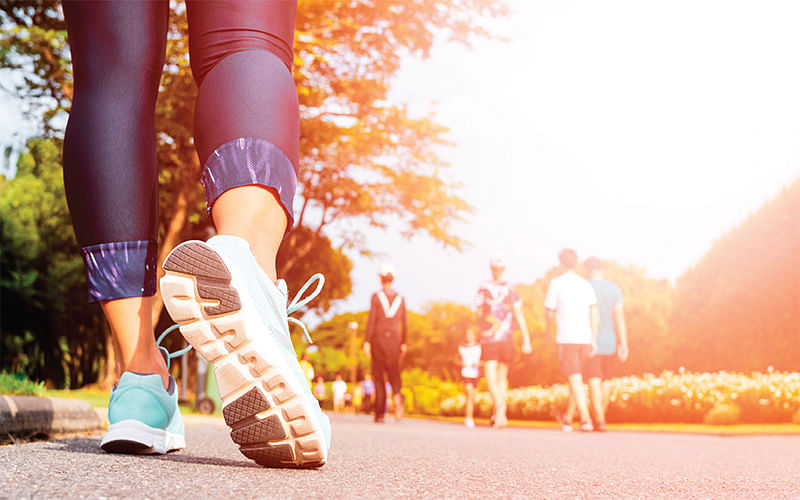Kashmir valley is blessed with a pleasant weather in the summers but the city and towns experience high temperatures from June to September up to the order of 30 degrees Celsius for months together. The additional humidity coming from across the hills, where it is monsoon time can make things worse. This is especially important because the people in general are living in houses usually made for winters with less free air circulating. The Jammu region has full-fledged summer with temperatures soaring over 40 degrees and people sweat a lot especially with the onset of rains.
These weather conditions can pose problems for patients with high blood pressure, heart diseases and weak hearts. In order to keep body cool, the body produces sweat. This is a burden on the heart which needs to pump more blood. This can be an additional burden on a weak heart with a low left ventricular ejection fraction (Normal is more than 50%). These patients usually have low blood pressure and are on several drugs, to keep them stable and live longer. They can complain of increasing fatigue, giddiness and even loss of consciousness for a short while when exposed to heat at the peak of the summer. Such persons should avoid getting exposed directly to the heat, stay in the cooler portions of their homes and drink more fluids. A follow up visit of such patients to their treating doctor is important especially if there are symptoms of weakness etc, or the blood pressure drops to less than 100 mms Hg. Meanwhile self-medication or tampering with the drug doses is not desirable. In these situations, often the dose of water pills (like Lasix and Dytor etc.) needs reduction under medical supervision. One of the guides of recognising low fluid content of the body is passage of high coloured urine and hot dry skin.
Hypertension which is a common problem and most patients are on drugs and often multiple tablets. It is common to have reduced need for drugs during the summer months as compared to the colder seasons. Home BP monitoring is very important in this regard since readings measured in the clinic are invariably higher. In general, the BP is at least 10 to 20 mms lower in-home recordings. In case of doubt on the accuracy of the readings, it is advised that the instrument can be carried to the physician’s clinic and reading can be verified by cross checking. Medicine doses, however, should not be changed without physician’s advise. At least a telephonic communication should be made. It is once again seen that the doses of water pills may need reduction. It is seen some patients start taking more salt to compensate for sweat-induced loss. It is wrong because the amount of salt loss is dependent on the levels of sodium in the blood.
Patients with angina, who get chest discomfort on walking after a predictable distance should also be careful when walking on a hot day. Their symptoms may increase because of overburdening of the heart which needs more oxygen and nutrients. Some tips to avoid this phenomenon is to choose times when it is relatively cool, take your medicines in time and not to go for walks etc immediately after meals. Keep yourself well hydrated by drinking enough fluids in the form of plain water, fresh cool fruits like melon, citrus fruits and salads. Beverages like excessive tea, coffee and caffeinated drinks should be avoided. These lead to excessive loss of fluid through urine. When it is necessary to walk, go to shady areas. Wear light and loose clothes and avoid excessive un familiar exercises.
Vulnerable population: Elderly people and young children, people with underlying heart diseases and high blood pressure.
The most common symptoms of heat exhaustion are dizziness, headache, light headedness, moist skin, nausea, vomiting and passing dark coloured urine. This population needs proper counselling to avoid problems during summers.
Prof Upendra Kaul is founder Director Gauri Kaul Foundation, and recipient of Padma Shri and Dr B C Roy Award.
Disclaimer: The views and opinions expressed in this article are the personal opinions of the author. The facts, analysis, assumptions and perspective appearing in the article do not reflect the views of GK.







